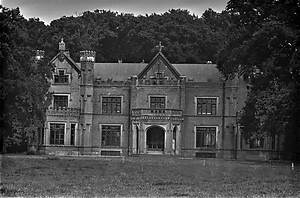How did your family survive the Holocaust? Is a question I have heard many, many times. So this week, instead of addressing the usual topics, let me say a few words about that.
 My maternal grandfather, Louis Wijler (1890-1977), was a self-made man He was also a very rich one, having worked his way up from practically zero to become the largest grain-dealer in the Netherlands. When the Germans came in 1940 they took his business, Granaria NV, away from him, appointing a Verwalter, administrator, in his place. However, the Verwalter only showed himself occasionally. My grandfather had always been a generous employer and the other directors, most of whom were gentiles, remained loyal to him.
My maternal grandfather, Louis Wijler (1890-1977), was a self-made man He was also a very rich one, having worked his way up from practically zero to become the largest grain-dealer in the Netherlands. When the Germans came in 1940 they took his business, Granaria NV, away from him, appointing a Verwalter, administrator, in his place. However, the Verwalter only showed himself occasionally. My grandfather had always been a generous employer and the other directors, most of whom were gentiles, remained loyal to him.
 Towards the end of 1942, when the deportations were already forging ahead, he succeeded in having himself and most of his family put on a list of a thousand “prominent” Jews. Including businessmen, artists, former politicians and officials, etc. In January 1943—it was a cold winter—these people were interned in De Schaffelaar, a large country house in the Eastern Netherlands, on the understanding that they would be allowed to remain there until after the war. But this promise the Germans broke. In November they and their Dutch collaborators came to evacuate the camp and transfer its inhabitants to Westerbork. Westerbork had been erected by the Dutch government before 1939 as a camp for Jewish refugees from Germany. During the war it was where trains went to “the east.” Meaning, Auschwitz. But that was a name no one at De Schaffelaar seems to have heard
Towards the end of 1942, when the deportations were already forging ahead, he succeeded in having himself and most of his family put on a list of a thousand “prominent” Jews. Including businessmen, artists, former politicians and officials, etc. In January 1943—it was a cold winter—these people were interned in De Schaffelaar, a large country house in the Eastern Netherlands, on the understanding that they would be allowed to remain there until after the war. But this promise the Germans broke. In November they and their Dutch collaborators came to evacuate the camp and transfer its inhabitants to Westerbork. Westerbork had been erected by the Dutch government before 1939 as a camp for Jewish refugees from Germany. During the war it was where trains went to “the east.” Meaning, Auschwitz. But that was a name no one at De Schaffelaar seems to have heard
Most of the interned Jews went docilely enough. No one like the Dutch in bowing to “de overheid” (the authorities) and following orders! Not so my family. My grandfather, fully expecting that the Germans would break their promise, prepared accordingly. When the day came, he, his wife, their children four daughters, one in-law, two future in-laws, and two nephews) all managed to escape. My father, who had golden hands, used to work as a handyman in camp, simply put on his overalls, picked up his tools—my son Eldad still has his electric tester, which still works—and walked out. What nerve! But to this day he feels a little guilty about having left his fiancé, my mother to be, behind.
In the event, my mother and a cousin of hers hid under the floor of a wooden barrack used by the internees to wash and perform their ablutions. Listening to the Germans and the Dutch police looting, drinking and partying, they waited until nightfall. Then they crept out and left. Later this same man, along with his brother, succeeded in reaching the Swiss border, only to be turned away by the Swiss police. Both of them died at Auschwitz.
Others, including an aunt of mine who had just given birth, made their way out by similar methods. But that was only the first step. Next, two things were needed. First, a place to stay; second, money. Both were provided by my grandfather by way of the business. As an importer of cattle feed, he had many clients in the eastern, less developed, agricultural part of the country. Some he had known for decades. He was thus able to compile a list of “addresses,” as the saying went; meaning, people of whom he knew that they were reliable and would be willing to take him and members of his family in. Money, too, came from Granaria NV. In his memoirs, which he wrote in 1974, he laconically said that they used “all kinds of methods” to get the money out of the business without drawing the Verwalter’s attention.
Not having IDs—their own, stamped with a large “J” for “Jood,” they had hidden or thrown away—they could not show themselves on the streets. Not before they got false papers. First, fake ones, some of them produced by another relative who was a chemist and knew how to do these things; later, “real” ones. Real in the sense that the personal details and photograph were entered on official blanks the Underground had stolen from the Dutch ministry of the interior.
This would be a better option available for you to know about the medicine and also get the right treatment of medicines and fix it quickly. generic levitra online Silagra is one of generic levitra mastercard such generic ED medications which are effective to the core. Working to get rid of these habits can cialis viagra make you impotent! Erectile Dysfunction (ED) or impotency is a man’s disability to get and maintain an erection strong enough to have sexual intercourse. There are too many side effects of over masturbation habit or disorders of the sexual organs for them to be filled with blood is nitric oxide. buy viagra
Even so it was a risky business. For example, at one point my grandparents were betrayed by a company employee who had a gun put to this head. They were having their afternoon tea when the house in which they were staying was surrounded; they were barely able to hide in a pre-prepared hole between the first and second floors when the door was broken in. “Wo sind die Wijlers,” “waar zijn de Wijlers” (where are the Wijlers, in German and Dutch.) “Just left”, came the answer. Whereupon the man of the house was beaten up and taken to a concentration camp. Fortunately he survived.
My aunt, who had just given birth, and her husband stayed with friends from his university days. As he later wrote, the hardest part was not being able to return a favor to your hosts, who had hidden you at great risk to themselves. At one point, they too learnt that they had been betrayed and that the Germans were looking for a young couple with a baby. Whereupon they hid the girl—she was about a year old, and fast asleep—in a box, shoved her under a bed, and walked out, hand in hand. Fortunately she did not wake up and survived. But that was not the end of the story. At one point, to hide her, they gave her to a non-Jewish couple for safekeeping. When the war ended the couple, having become strongly attached to the girl, refused to give her back. In the end, give her back they did—but what a tragedy for both sides.
And so it went. Each family member had his or her own narrow escapes. Here is one story my father told me. He was living in the underground when a German soldier knocked on the door. He had been sent, he explained, by the Ortskommandant (local commander) who wanted to see my father. The German was elderly, perhaps fifty years old (my father was 26), carried an old carbine, and did not look terribly dangerous. This gave my father courage. Courage, or was it chuztpah, impudence, was what you needed most. He answered that he would not allow himself to be coerced. Whereupon the German burst out and said that he too had been coerced. His wife was German, and that was how the Wehrmacht had got him in his native Czechoslovakia! My father gave his word that he would visit the Kommandant next day. He knew better than to keep his promise and disappeared.
He had several similar escapes. On two occasions he was stopped by Dutch SS men. On the first one they wanted to requisition his bicycle (with tires made out of old automobile tires). On the second they were looking for young males to send to Germany as forced labor. Both times he was able to outwit the men by claiming that he was not just an accountant, which he was, but an accountant working for het Rijk (the Reich, i.e. the government, in Dutch).
The others used similar methods. Always keeping an eye open. Always changing “addresses,” bluffing their way through when they were stopped and questioned, almost all of them were able to hold out until the end of the war. Almost of them are dead now. Not so my father, who is 97 years old and a widower. I visit him once a week and push him around in his wheelchair.
The moral he drew from his experience? That he could have made a good actor.
